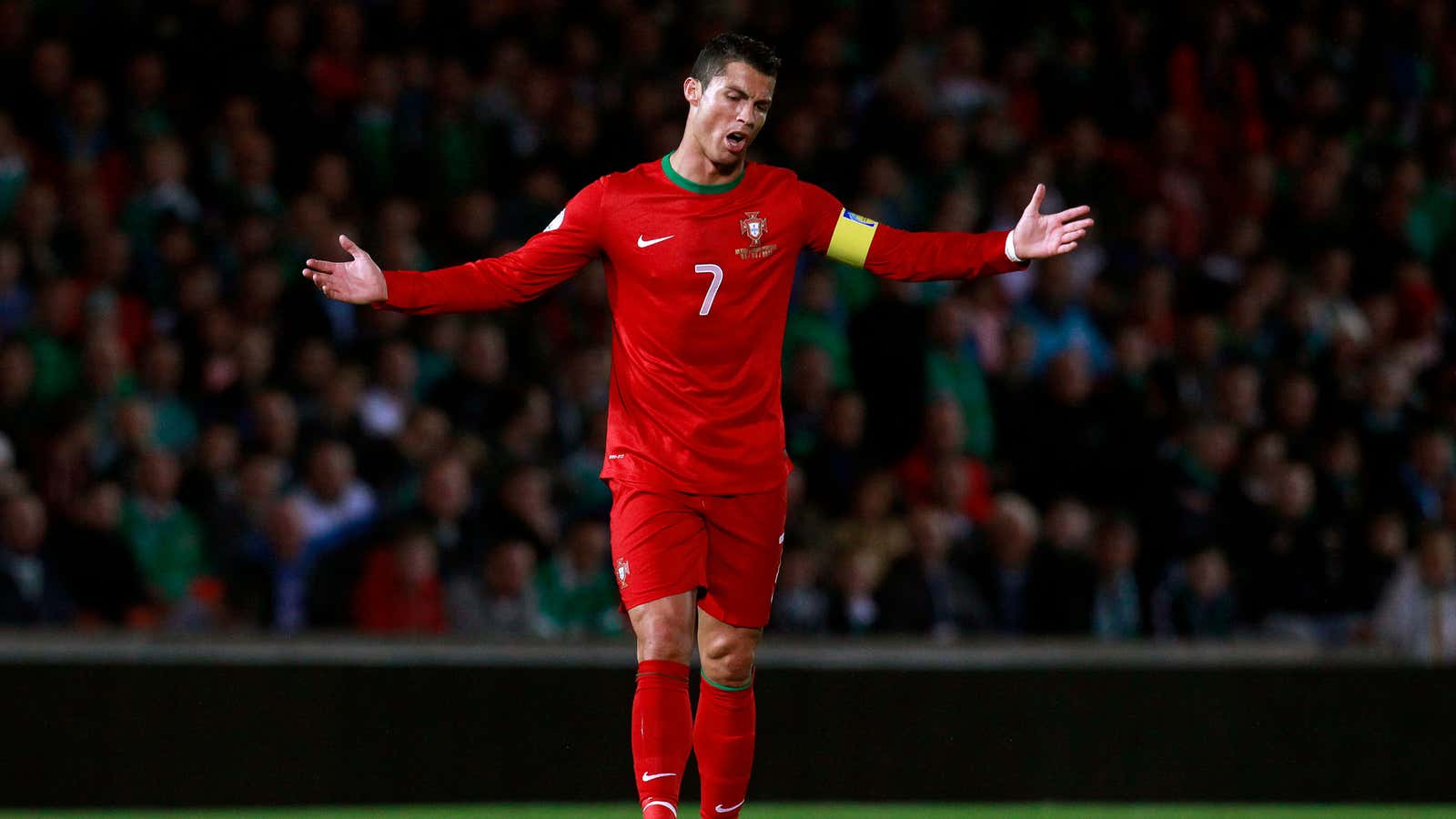Teams around the world vying to get into the World Cup aren’t just gunning for the limelight; they’re also competing for financial boosts worth hundreds of millions of dollars.
Portugal’s national soccer team is set to face off against Sweden’s today, in what will be an especially momentous World Cup qualifying match. A series of under-performances by both teams has left no margin for error for either team—whichever one wins will compete in Brazil next summer; whichever one loses will not. Of course, not every team with a high international ranking makes the cut; the 32 teams chosen are selected based on geographic groupings. But missing the World Cup would be a big professional disappointment for whichever squad fails. And it would be especially embarrassing for a country like Portugal, which is currently ranked 14th in the world.
It would also be a big financial blow. According to marketing school IPAM (link in Portuguese), which calculated the impact a World Cup qualification would have for Portugal, missing the tournament would mean foregoing an estimated €200 million ($269 million) for national industries like retail, restaurants and bars, airlines, and marketing and public relations. Portugal not making it into next year’s World Cup would also mean no Cristiano Ronaldo on the big stage, one of the world’s best and most marketable players who is sponsored by companies like Nike and Herbalife.
Mexico, whose national team effectively secured a bid to the World Cup on Nov. 13, nearly fell victim to this fate. A loss to New Zealand in their do-or-die match would have meant missing the tournament—along with hundreds of millions of dollars in forgone profits. “If I summed up all of the factors, both direct and indirect, macro and micro, without exaggerating the loss for the entire industry, the loss would be about $600 million,” a director at Mexican sports marketing firm Rogelio Roa told ESPN (link in Spanish). In Mexico’s case, not qualifying for the tournament would have weighed more on the country’s lucrative sports broadcasting business whose payouts for TV rights (sometimes these are owned by teams, sometimes by media companies or regional soccer governing bodies) depend on the size of the audience, Roa explained.
For its part, England could lose more than £100 million ($161 million) in missed sponsorship deals and other revenues.
Soccer jersey sales, beer consumption, marketing revenues and internet usage all tend to jump during the World Cup, but without a national team to root for, there’s less incentive for a country’s soccer fans to splurge. These sales don’t just affect the revenues flowing to teams and their national industries, they affect multinational players, too. Adidas, the official jersey maker for the World Cup, is highly dependent on the sales success of specific team jerseys. Had Mexico failed to qualify, for example, the company would have had to forfeit a sizable chunk of its soccer jersey sales, since the Mexican team’s outfit is Adidas’s best selling international jersey. Companies like Coca-Cola, Visa and Anheuser-Busch all invest millions of dollars in ad campaigns and sponsorship deals, and often with specific teams and regions in mind. Forfeiting sizable chunks of those national and region-specific audiences could wipe out big advertising and investment opportunities.




